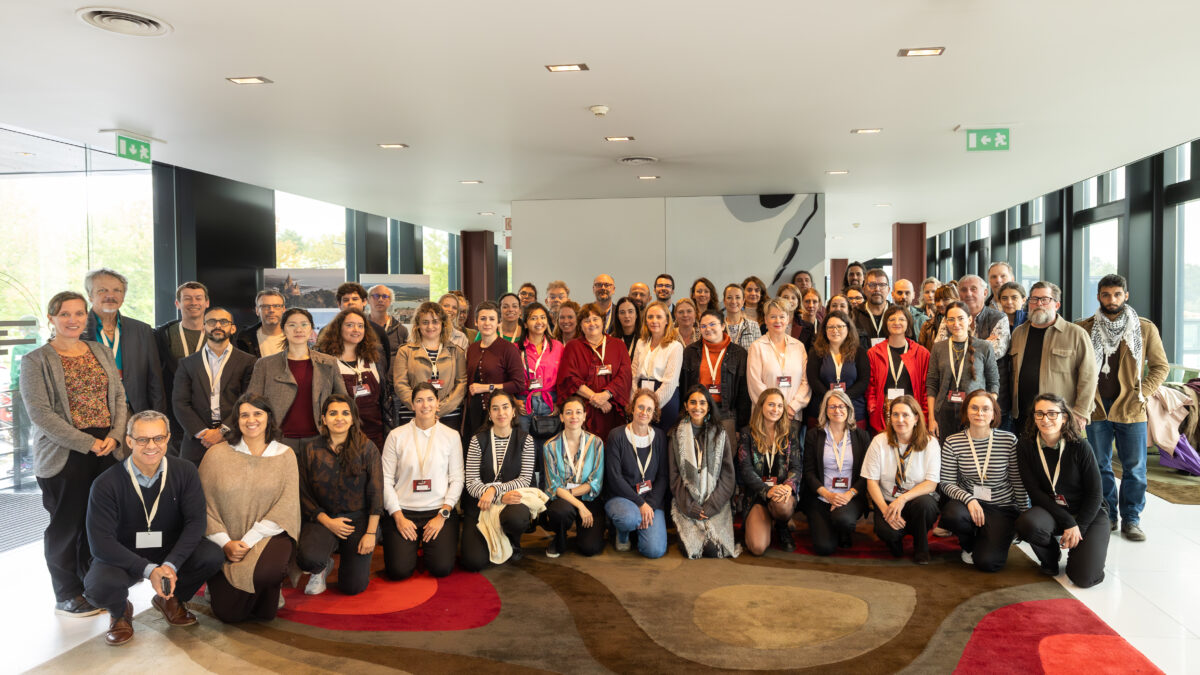
On 8 and 9 October, 2024, the FEAST consortium gathered in person for its bi-annual partners meeting. As a project partner, EAT attended and took part in these two days of interactive meetings and site visits.
Read on to find out more about the project and local activities.
This article was originally written in Portuguese: KmZero Portuguese Food Innovation Hub and translated to English for the FEAST website.
The FEAST consortium was invited by its partner, the Polytechnic Institute of Viana do Castelo (IPVC) and the Alto Minho region, to explore local practices in sustainable production and the promotion of healthy diets, emphasizing the importance of relationships between producers and school canteens.
The visit covered the sub-regions of Lima Valley and Minho Valley and provided a closer look at innovative projects and community initiatives that are transforming the region’s food system. These actions aim to support the local economy, promote healthy eating habits, and preserve the region’s natural heritage.
Visit to the Lima Valley:
The FEAST group started in the Lima Valley sub-region, visiting the Facha Education Centre and the Ponte de Lima EB1 School. Here, they learned about the direct management model of the canteens: parents’ associations buy products directly from local producers, promoting quality food and encouraging the consumption of fresh, seasonal produce. The municipality of Ponte de Lima is working to expand this model to all schools, guaranteeing access to free snacks for students and promoting sustainable initiatives such as the Green Lung project.
Another highlight of the visit was the presentation of the Agroalimiano Market, which brings together 25 local producers and offers more than 200 seasonal products. This market plays an essential role in linking school canteens and producers, ensuring fresh and quality foods. The importance of integrating local producers into the school supply chain was emphasized.
A challenge was highlighted: the limited capacity of small producers to supply products consistently to school canteens, as well as the difficulties generated by public procurement tools, which often make it difficult for small producers to access this market.
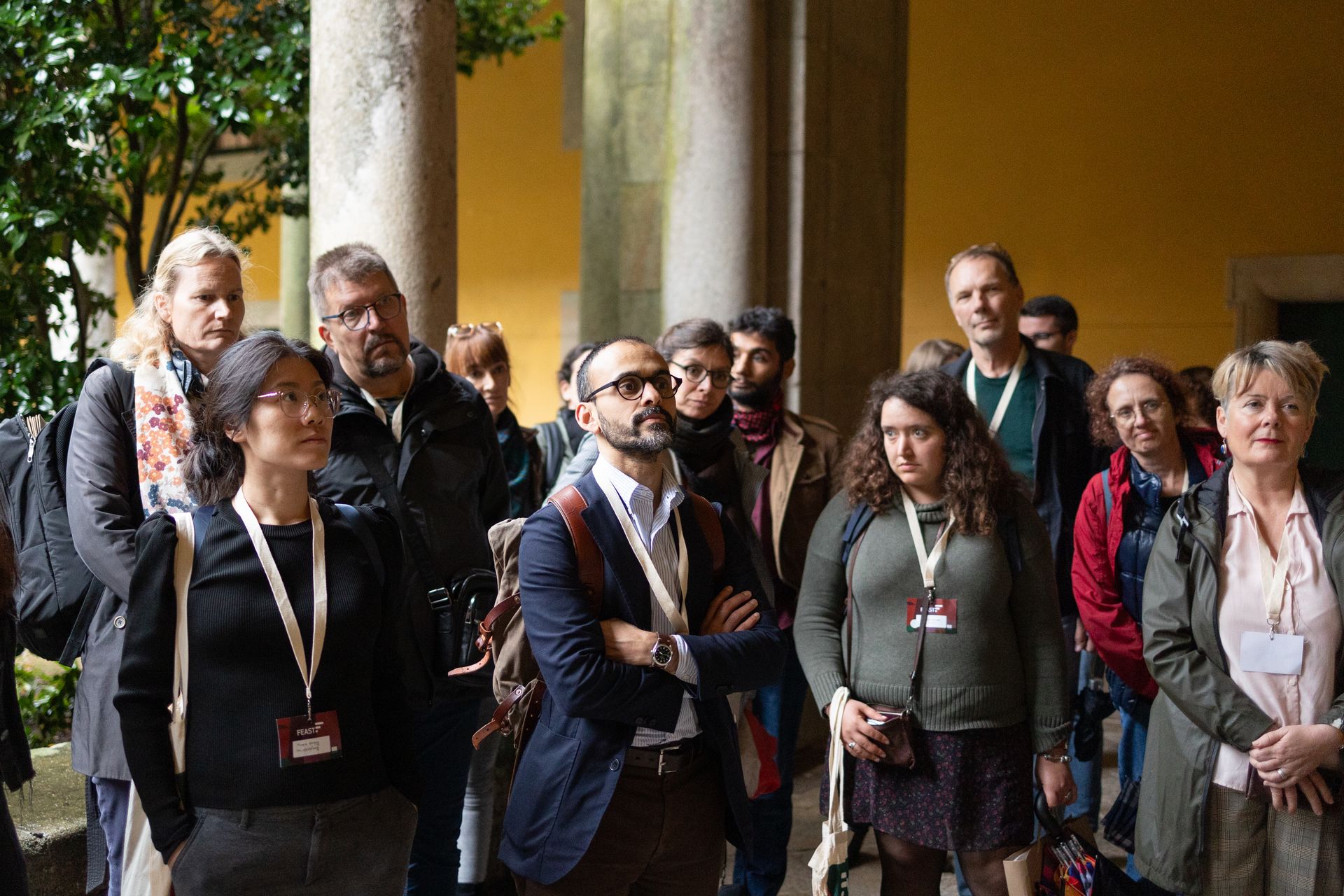
Education, and Preservation at the School of Agriculture
The consortium also visited the Ponte de Lima School of Agriculture, where work is being carried out in training professionals in the areas of sustainability. Education in environmental preservation and sustainable agricultural development were highlighting, in preparing professionals to face the challenges of the sector.
Biodiversity: Innovation in Sustainable Production
Biodiversus, a company dedicated to the sustainable production of fruit and vegetables, shared their work. The company’s founder presented the challenges facing the sector, emphasizing the need to respect the planet while promoting organic production.
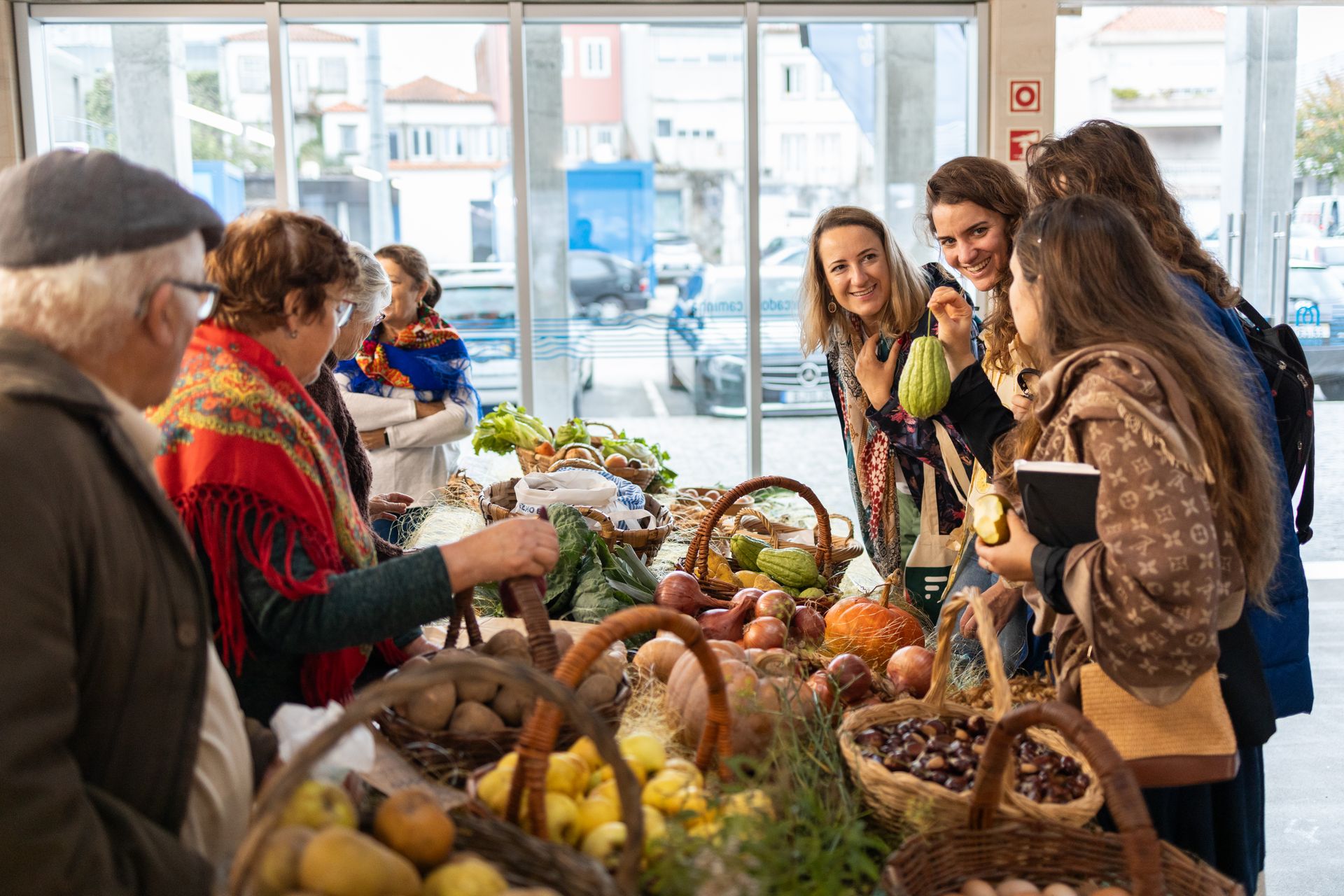
Visits to the Minho Valley:
The visit to the Minho region began at the Caminha Fish Market, where councilor Sandra Fernandes presented the collaboration with local fishermen and producers. The market promotes short production chains, linking fishermen directly to consumers, including school canteens.
This was followed by a visit to the Minho River Aquamuseum, which focuses on conservation efforts for the river’s native species and collaboration with Spanish partners. The museum is a vital center for the preservation of the region’s natural and cultural heritage.
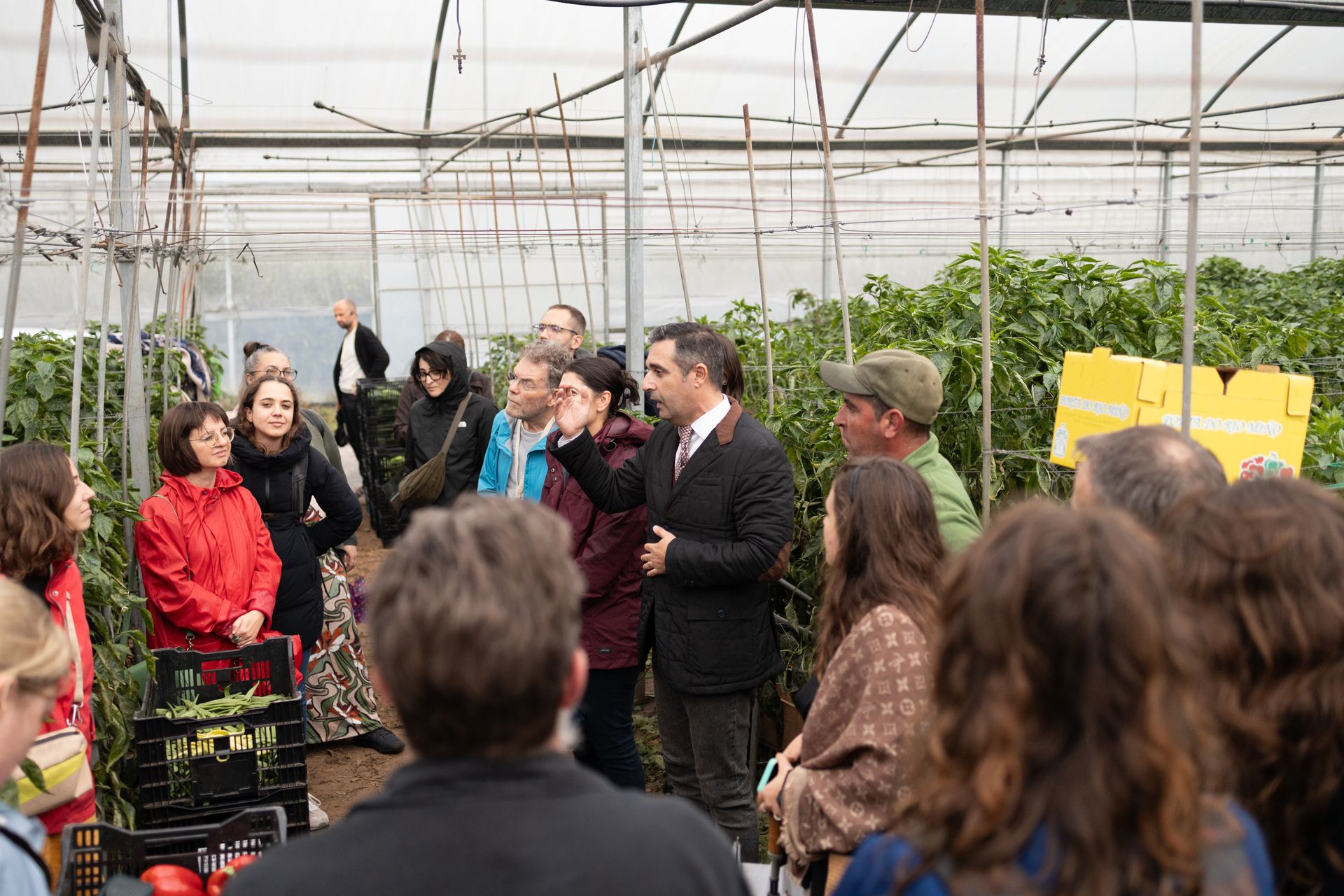
ADRIMINHO: Promoting Healthy Eating
The AlimentAÇÃO project promotes healthy and sustainable eating in the region’s schools, including initiatives in the municipalities of Caminha, Valença, and Melgaço, addressing the need to combat food waste and promote balanced diets.
Sustainable Horticultural Production in Val de Patas
The day ended in Quinta Val de Patas, a farm embracing sustainable agricultural practices. Despite the challenges faced by small-scale producers, ADRIMINHO’s work has been fundamental in engaging more and more farmers in short food supply chains.
FEAST Consortium Meeting
On 9 October, Ana Paula Vale (IPVC), Paulo Queiróz (Executive Secretary of CIM Alto Minho), Luis Nobre (Presidente of Viana do Castelo Municipality) and Paulo Sousa (Vice-president of Ponte de Lima Municipality), visited the consortium.
Paulo Queiróz emphasised the CIM’s role in promoting cooperation between the region’s municipalities, with a view to improving infrastructure, services, and quality of life. He reinforced the role of FEAST, whose focus is to promote more sustainable food systems, with an emphasis on the production, distribution and responsible consumption of food. Through the Living Lab, CIM aims to sensitise communities to the importance of sustainable food practices, develop solutions and strategies that reduce the environmental impact of food production and, above all, foster partnerships between various stakeholders, such as governments, companies and citizens.
Luis Nobre presented the Municipal School Food Program, which focuses on healthy, safe and sustainable eating, with a single menu expanded to the 47 school cafeterias and with actions and projects developed to promote healthy eating among the entire school community. The county’s seven school groups serve about 10,500 meals a day, with 44 cafeterias cooking locally and three cafeterias serving carry-in meals.
Paulo Sousa discussed the ecosystem of school cafeterias, their management model, as well as the implementation of the “Pedagogical Gardens” project in the municipality’s schools, the work carried out by the municipality in investing in endogenous resources and the strategy for enhancing their gastronomic value.
The working groups discussed the site visits to Lima and Minho. The strategies discussed aim to strengthen community resilience and foster collaborative innovation in different regions of Europe.
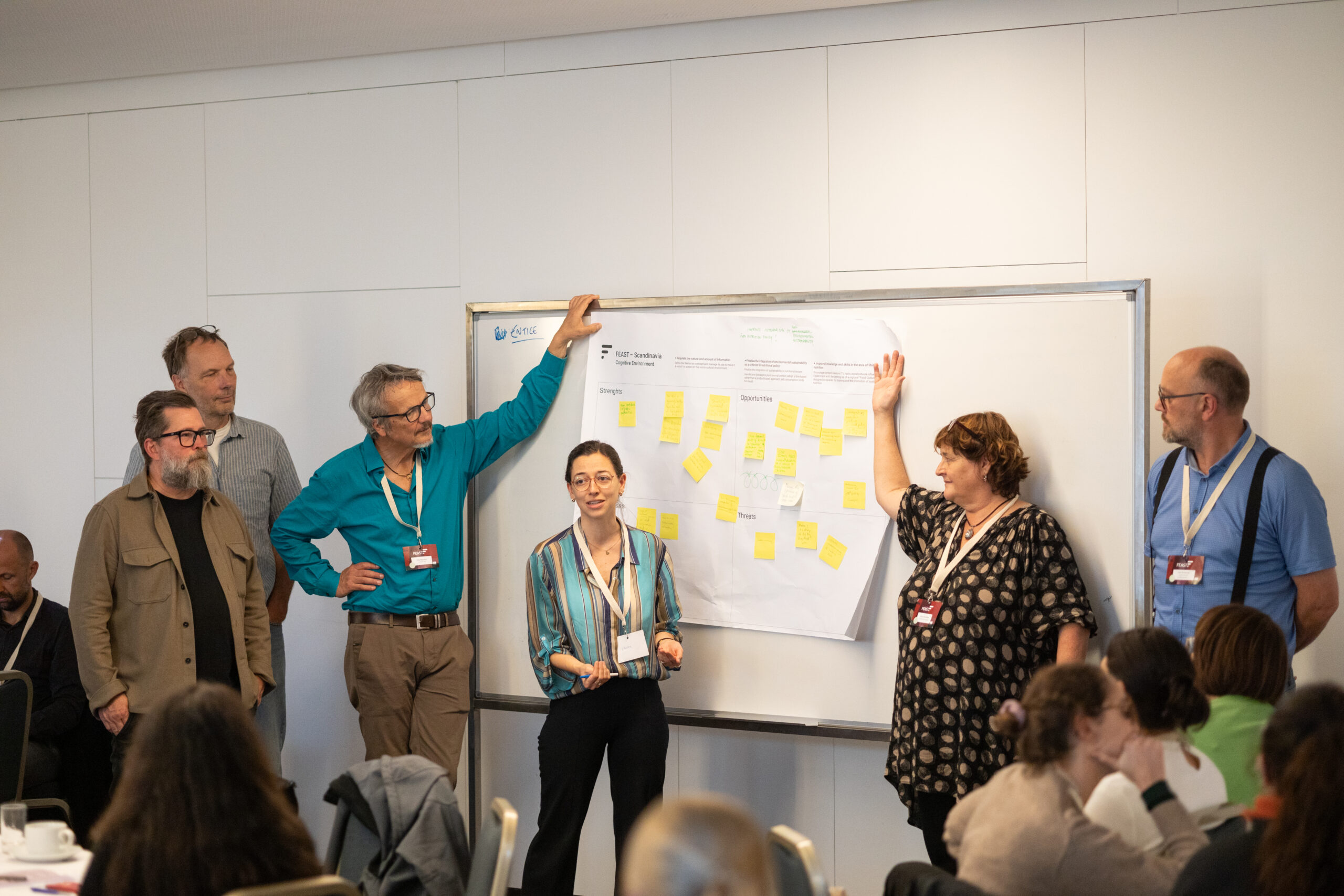
Opportunities and Challenges in Alto Minho
Visits to Alto Minho revealed the region’s enormous potential for promoting healthy and sustainable food, but also significant challenges, such as the limited ability of small-scale producers to deliver products on an ongoing basis and the obstacles created by public procurement instruments.
The FEAST project reaffirms its commitment to addressing these barriers by raising community awareness of the benefits of sustainable food, promoting short supply chains and adding value to local products. The initiatives developed and inspiring solutions discussed during these two days are a model for the future of the European food system.
About FEAST
FEAST aims to make it easy for every person in Europe to eat a delicious, healthier and more sustainable diet. Find out more: https://feast2030.eu.
 FEAST is co-funded by the European Union’s Horizon Europe research and innovation programme under grant agreement number 101060536.
FEAST is co-funded by the European Union’s Horizon Europe research and innovation programme under grant agreement number 101060536.